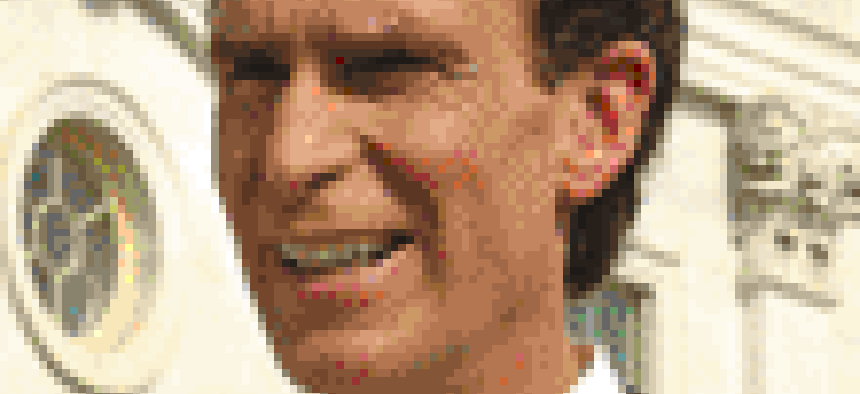Perspectives from the field: Bill Nye, the Science Guy

<FONT SIZE=2>Bill Nye, 46, has worked on flight control systems, designed equipment for oil slick skimming and a navigation system for jets. He has been a consulting engineer to the Justice Department and several firms. But he's not famous for his hydraulic pressure resonance suppressor, which is still flying on Boeing 747s. Rather, the bow-tie-wearing science enthusiast is best known for "Bill Nye the Science Guy," the long-running children's science television program on PBS. Nye spoke with </FONT><FONT SIZE=2>Washington Technology</FONT><FONT SIZE=2> Staff Writer Gail Repsher Emery about how he explains complicated subjects in simple terms and what can be done to get students more interested in science.</FONT>

Bill Nye, the Science Guy
WT: You are working on a new PBS show, "The Eyes of Nye." How will this be different than "Bill Nye the Science Guy"?
Nye: "The Eyes of Nye" will give people a scientific view of the world -- people who are old enough to vote. We are going to use multisyllabic words with abandon. On the old show, we taught buoyancy without ever using the word density.
WT: You recently filmed on the steps of the Capitol. Why?
Nye: Location, location, location. Our first show is about cloning. Cloning is a controversial topic, oui? Some people think we should clone everything. Some people think an egg has rights. There are scientific ways to reason the right and wrong of cloning. What better backdrop [to talk about it] than ground zero of democracy?
WT: What about cloning?
Nye: All the really good wine is from cloning; they bring the really good varieties from France. A twig grows into a clone. It's asexual. If you make humans by cloning, that offspring would not be the result of choice, two people selecting each other. Only one of them would have to survive fast food, learning to drive and all the other dangerous things in our lives. You would be falling one genetic step behind every time you cloned.
WT: How is detailed or complicated scientific information best explained?
Nye: You sit around and argue about it. Say 'suck out the guts' instead of enucleation. Show and tell. Don't tell and show if you can help it.
WT: Why aren't more students pursuing science careers today?
Nye: You've got me. There was absolutely nothing more compelling to me. The people who become teachers now were not comfortable with science when they were growing up. After the Apollo [space missions in the late 1960s and early 1970s], science and basic research funding tapered way off. So they are not comfortable with science. And the next generation is not comfortable with science.
WT: How can technology firms encourage students to pursue science careers?
Nye: Support congressmen and senators who support science research and funding basic education. Have advertisements with people having a good time doing science.
WT: What do you do if a project -- one you've been counting on to advance your firm -- tanks?
Nye: You quit. You seek employment elsewhere. But there is nothing more fun, there is nothing cooler than designing a system of mechanical parts and going to a machine shop and having it made and having it work. What's cooler than creating a product people want to buy? That's living.
WT: You became a consultant and started working in television in 1986. How big of a change was the move to TV?
Nye: You don't sit in a cubicle all day and draw. But you do have this idea you are going to create this science [on TV]. It has a lot in common with designing machine parts or control systems. As a mechanical engineer, I was drawn to it. But there is a performance aspect to it. And it's good to have a sense of humor.
WT: You also teach at Cornell University, where you earned a bachelor's degree in mechanical engineering. What's it like to be back there?
Nye: I took astronomy from Carl Sagan when I was in college. Now I'm teaching in the same classroom, but there is new carpet. It's pretty spooky.
WT: What's the best advice you ever received?
Nye: Treat people the way you want to be treated. Show and tell. Be honest. Carl Sagan told me, "Focus on pure science, not technology, because pure science appeals to people in a way that technology doesn't." Leave the world better than the way you found it. *